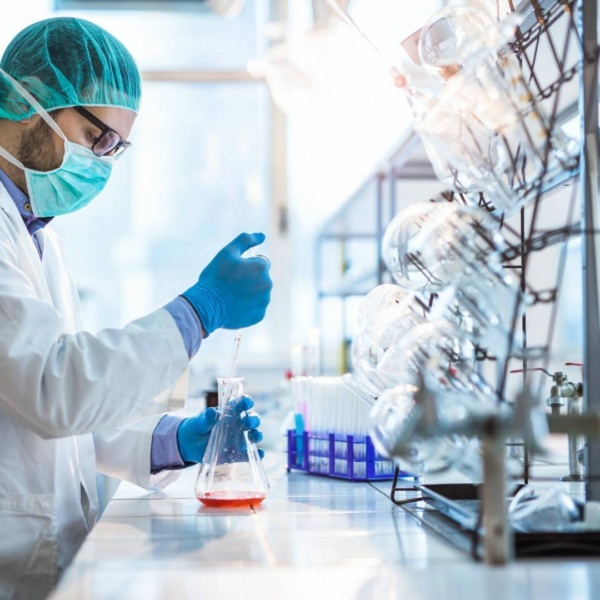Technology has transformed every aspect of our lives, and the field of healthcare is no exception. From diagnostic tools to treatment modalities, technology has revolutionized the way we approach and manage various health conditions. One area where technology has shown significant promise is in tackling the opioid crisis, a devastating epidemic that has affected millions of lives worldwide. In this article, we will explore the power of technology in health, with a specific focus on synthesis of methadone and its unprecedented benefits in overcoming opioid dependency.
The opioid crisis is a complex public health emergency that has gripped nations around the globe. It has resulted in a staggering number of deaths, destroyed families, and strained healthcare systems. Traditional treatment approaches for opioid dependency, such as detoxification and counseling, have shown limited success rates. This has created an urgent need for innovative solutions that can effectively alleviate the suffering of those struggling with opioid addiction.
What is Methadone Synthesis and How Does it Work?
Methadone synthesis is a process that involves the creation of methadone, a medication that is primarily used for the treatment of opioid dependency. Methadone is classified as a synthetic opioid, which means it acts on the same receptors in the brain as other opioids but with a milder effect. It works by reducing withdrawal symptoms and cravings, allowing individuals to stabilize their lives and focus on their recovery.
The Benefits of Methadone Synthesis in Overcoming Opioid Dependency
Methadone synthesis offers a range of benefits in overcoming opioid dependency. Firstly, it provides relief from withdrawal symptoms, such as nausea, vomiting, and muscle aches, which can be incredibly distressing for individuals attempting to quit opioids. This alleviation of symptoms allows patients to function normally and engage in their daily activities, improving their overall quality of life.
Secondly, methadone synthesis helps to reduce cravings for opioids, making it easier for individuals to resist the urge to relapse. By occupying the same receptors in the brain that opioids bind to, methadone effectively blocks the effects of other opioids, preventing the euphoria associated with drug use. This reduces the risk of relapse and promotes long-term recovery.
Furthermore, methadone synthesis provides a stable and predictable medication regimen, allowing individuals to regain control over their lives. Unlike illicit opioids that can vary in potency and purity, methadone is carefully formulated and administered under medical supervision. This ensures consistent dosing and reduces the risk of accidental overdose, providing a safer alternative for long-term maintenance therapy.
The Role of Technology in Advancing Methadone Synthesis
Technology has played a crucial role in advancing the field of methadone synthesis. Through innovative research and development, scientists and pharmaceutical companies have been able to refine the synthesis process, resulting in more efficient and cost-effective production of methadone. This has made the medication more accessible to those in need, expanding treatment options and improving outcomes for individuals struggling with opioid dependency.
Furthermore, technology has facilitated the development of novel delivery methods for methadone, such as long-acting formulations and implantable devices. These advancements have enhanced patient convenience and compliance, reducing the burden of daily medication administration and ensuring consistent therapeutic levels of methadone in the body.
Challenges and Limitations of Methadone Synthesis
While methadone synthesis offers significant benefits, it is not without its challenges and limitations. One of the primary concerns is the potential for misuse and diversion. Methadone, like other opioids, can be addictive if not used as prescribed. Therefore, strict monitoring and regulation are necessary to minimize the risk of diversion and ensure that methadone is used solely for its intended purpose of treating opioid dependency.
Additionally, methadone synthesis may not be suitable for everyone. Some individuals may experience adverse effects or have underlying medical conditions that make methadone inappropriate for their treatment. It is crucial for healthcare providers to conduct thorough assessments and consider individualized treatment plans to ensure the safety and effectiveness of methadone synthesis for each patient.
Future Prospects and Advancements in Technology for Opioid Dependency Treatment
The future of technology in opioid dependency treatment holds immense promise. Research is underway to develop more targeted medications that can specifically address the neurobiology of addiction, reducing the risk of side effects and improving treatment outcomes. Additionally, advancements in artificial intelligence and machine learning may enable healthcare providers to personalize treatment plans based on individual patient characteristics, optimizing the efficacy of methadone synthesis and other treatment modalities.
Technology has the potential to enhance access to care for individuals in remote or underserved areas. Telemedicine platforms and mobile applications can facilitate virtual consultations, medication management, and counseling services, bridging the gap between patients and healthcare providers. This can significantly improve treatment adherence and reduce barriers to accessing opioid dependency treatment.
Conclusion: The Transformative Impact of Technology in Health and the Potential of Methadone Synthesis
In conclusion, technology has the power to revolutionize healthcare, particularly in the field of opioid dependency treatment. Methadone synthesis, with its unprecedented benefits in overcoming opioid dependency, has offered hope to individuals struggling with addiction. By alleviating withdrawal symptoms, reducing cravings, and providing a stable medication regimen, methadone synthesis has transformed the lives of countless individuals, allowing them to reclaim their health and well-being. As technology continues to advance, we can expect even greater strides in the treatment of opioid dependency, offering hope for a brighter future for those affected by this devastating crisis.





